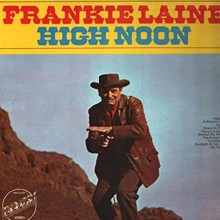Introduzione
Questo sito è dedicato a tutti quei nostri amici i quali, dando prova di grande fiducia e considerazione nei nostri confronti, attendono sempre con curiosità ed impazienza la conclusione dei nostri viaggi, siano essi semplici escursioni o vere e proprie vacanze, per acquisire informazioni ed anche suggerimenti che siano utili, poi, per le "loro" vacanze.
Ci auguriamo che questo nostro lavoro sia di loro gradimento.
Toni e Fausta Di Rossi
Questo sito è dedicato a tutti quei nostri amici i quali, dando prova di grande fiducia e considerazione nei nostri confronti, attendono sempre con curiosità ed impazienza la conclusione dei nostri viaggi, siano essi semplici escursioni o vere e proprie vacanze, per acquisire informazioni ed anche suggerimenti che siano utili, poi, per le "loro" vacanze.
Ci auguriamo che questo nostro lavoro sia di loro gradimento.
Toni e Fausta Di Rossi
Diritti
Il presente sito viene pubblicato al solo scopo di illustrare, presso un pubblico di amici e senza alcun fine di lucro, i nostri viaggi, le nostre vacanze o le nostre semplici escursioni.
I testi e le fotografie altrui, che vengono inseriti a titolo puramente didascalico, sono ricavati da pubblicazioni e siti internet dei quali viene sempre riportata la titolarità. Se si dovesse intravedere, nell'utilizzo di tale materiale, al di là dello scopo dichiarato, finalità non coerenti con quanto presupposto dagli aventi diritto, si prega farlo presente al webmaster che provvederà prontamente alla sua rimozione.
Si coglie l'occasione per ringraziare sentitamente tutti coloro che, tramite le proprie pubblicazioni, cartacee o multimediali, hanno contribuito a rendere più fruibile, presso il pubblico degli estimatori, il contenuto del presente sito.
Il presente sito viene pubblicato al solo scopo di illustrare, presso un pubblico di amici e senza alcun fine di lucro, i nostri viaggi, le nostre vacanze o le nostre semplici escursioni.
I testi e le fotografie altrui, che vengono inseriti a titolo puramente didascalico, sono ricavati da pubblicazioni e siti internet dei quali viene sempre riportata la titolarità. Se si dovesse intravedere, nell'utilizzo di tale materiale, al di là dello scopo dichiarato, finalità non coerenti con quanto presupposto dagli aventi diritto, si prega farlo presente al webmaster che provvederà prontamente alla sua rimozione.
Si coglie l'occasione per ringraziare sentitamente tutti coloro che, tramite le proprie pubblicazioni, cartacee o multimediali, hanno contribuito a rendere più fruibile, presso il pubblico degli estimatori, il contenuto del presente sito.
Contatti
Salve, noi speriamo che il sito vi sia piaciuto. Se non fosse così non esitate a farci pervenire, se volete, le vostre critiche o i vostri suggerimenti. In questo caso ci trovate al seguente indirizzo:
webmaster@tonidirossi.it
Un cordiale saluto,
Toni e Fausta Di Rossi
Salve, noi speriamo che il sito vi sia piaciuto. Se non fosse così non esitate a farci pervenire, se volete, le vostre critiche o i vostri suggerimenti. In questo caso ci trovate al seguente indirizzo:
webmaster@tonidirossi.it
Un cordiale saluto,
Toni e Fausta Di Rossi

 " The Ballad of High Noon " (conosciuta anche semplicemente come " High Noon ", o dal suo testo di apertura e titolo più noto, " Do Not Forsake Me, O My Darlin' ") è una canzone popolare pubblicata nel 1952, con musica
di Dimitri Tiomkin e testi di Ned Washington.
" The Ballad of High Noon " (conosciuta anche semplicemente come " High Noon ", o dal suo testo di apertura e titolo più noto, " Do Not Forsake Me, O My Darlin' ") è una canzone popolare pubblicata nel 1952, con musica
di Dimitri Tiomkin e testi di Ned Washington. 